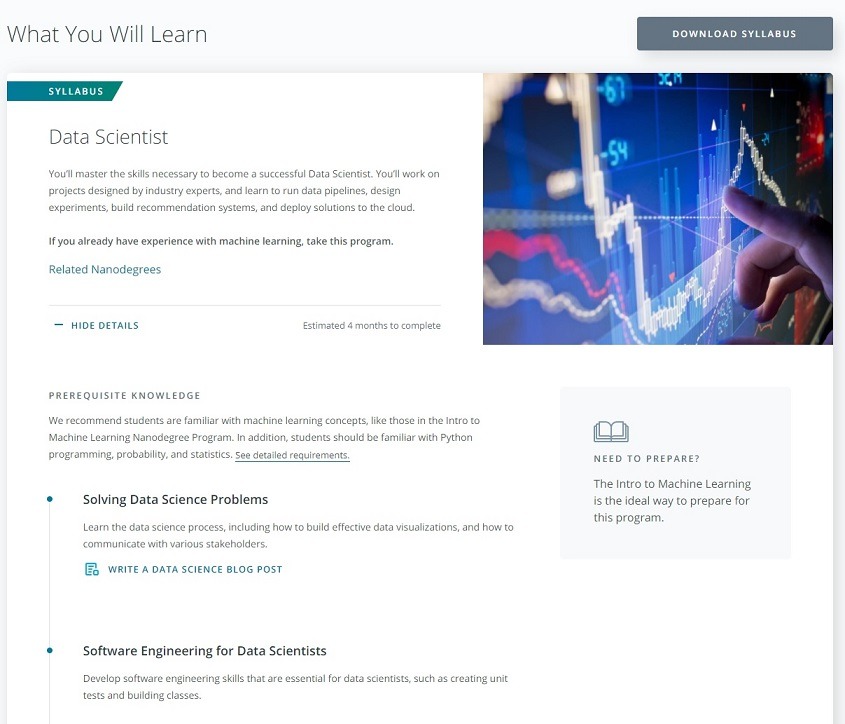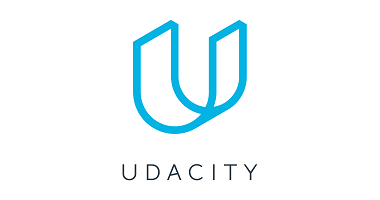Udacity has been around for a while and has gained quite a reputation for providing excellent courses in tech related fields. In fact, you’ll find Udacity as one of the top recommendations for several courses on this site. Compared to the competition, Udacity stands out by going a step further. They provide extra value-added services, they provide guidance, mentorship, project support etc. which most other course providers do not. But all these extra services also come at a higher cost. So the question is are these Nanodegrees worth it and who should take them?
Special Udacity Offer!
Click here to generate your Personalized Udacity DiscountAre you the target audience?
The first question when you should ask yourself before you buy any product or service is whether the product is right for you or not. For example, buying an expensive mobile phone is a waste of money if you only use it for communication but you might be willing to spend several grand on a camera as a. Similarly, if you are serious about new technology and want to take the best course, then Udacity might be the right fit for you. But if you just heard a new buzzword and just want to dabble, then its probably not the right option.
Udacity courses, like all the good ones out there, require a serious time commitment from you. They have done a good job making the courses accessible and fun and interactive, but you still need to participate.
Is it worth the money?
This actually depends on your budget and financial situation as much as it does on the cost of the program. Compared to university courses, these Nanodegrees are of course far more affordable. But if I had to sum it up in one line, I would say that they cost more but they also offer more which makes them right for the right learner.
The main advantage of the Udacity Nanodegree course, in my opinion, is that they offer some serious brand recognition. If you have one of these one your Resume, any prospective employer knows that you have put in the time and work because completing the program successfully is an actual achievement. You can’t just sleep your way through.
How good is the course material?
I have reviewed hundreds of courses on this site, I get access to a lot of them for free. And Udacity courses are right up there in terms of content quality. Which is why they usually end up as my top recommendation for several tech topics. You can try it out for yourself though, there are some previews you can watch and make a call. I personally find that Udacity doesn’t skimp on content quality.
Special Udacity Offer!
Click here to generate your Personalized Udacity DiscountAre the programs well-paced?
This is one aspect which is kind of a mixed bag, based on feedback from my readers. Some people find that they can complete the courses on time as long as they stick to a schedule. While others feel they need more time than is recommended. This of course depends on your starting skill level, proficiency, discipline and even the time you have on your hands. If you are working a full-time job, you of course will take more time to complete a course and should plan accordingly. Remember that these Nanodegrees are serious business, and you need to commit if you want to succeed.
Will Udacity Nanodegrees help you in your career?
They will unequivocally help you in your career. But the real question is just how much will they help and will that be enough to land you your dream job? This again depends on son a lot of factors. Some skills are in such high demand, that you will immediately land an offer. It also depends on your other skills. For example, if you speak Japanese and take a tech course in a field where there is a massive skill shortage in Japan, you will make bank.
It is questions like these where I find myself transitioning from a reviewer to a career counselor! In order to get the most of your Nanodegree, you have to appropriately brand yourself. Your Nanodegree should be in a skill that your Resume is otherwise light on. Your project should also supplement the right skill. In fact, you should have several versions of your Resume based on the specifics of the job that you are applying to. For example, let’s say you have undertaken a Blockchain Nanodegree and project. You can focus on the technical aspects of that project, the research aspects of it, the financial side of it etc. based on each role you are applying for. That is how you get the most bang for your buck and time spent.

What are some other alternatives to Udacity?
That really depends on the topic. I have reviewed plenty of courses on this site. Pick a topic from the menu above and it should list the courses specific to that topic.
Final thoughts
The world is changing so quickly these days you simply have to participate in continuous online learning even if you have an excellent college degree. The truth is that learners are spoilt for choice, but the competition is also that much fiercer. You have your pick of learning providers but most of them are just quick money grab schemes with generic content provided by unmotivated, third-party instructors. Not worth a wooden nickel!
Udacity offers quality content, quality support and excellent brand recognition, but you have to commit to it. If you are disciplined enough to spend a couple of months learning a new skill to propel yourself towards a career that you are dead set on, then you will be hard pressed to find anything better.

